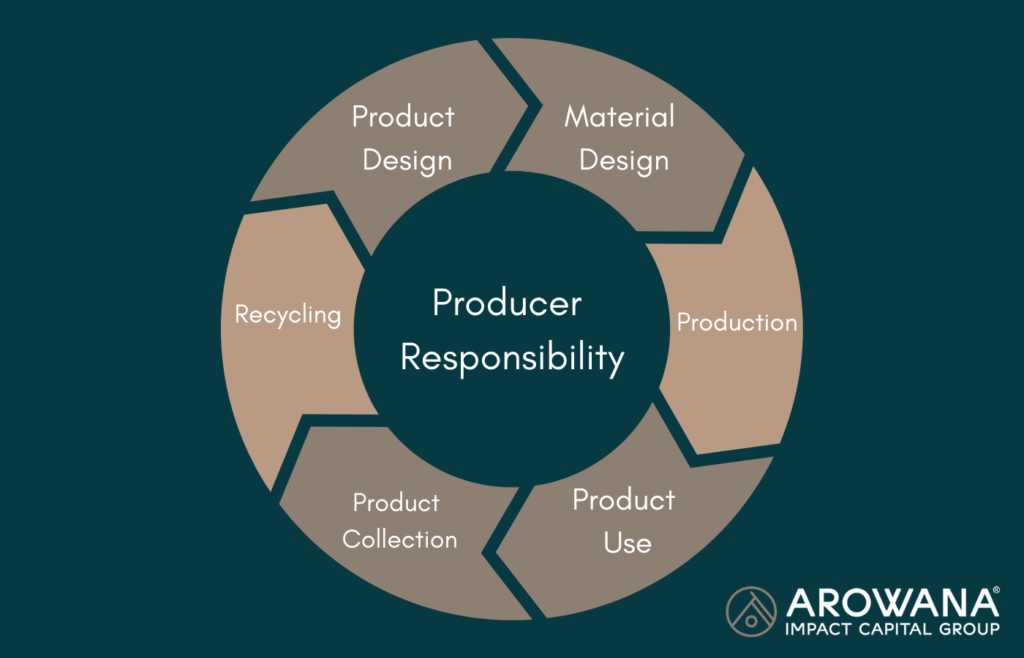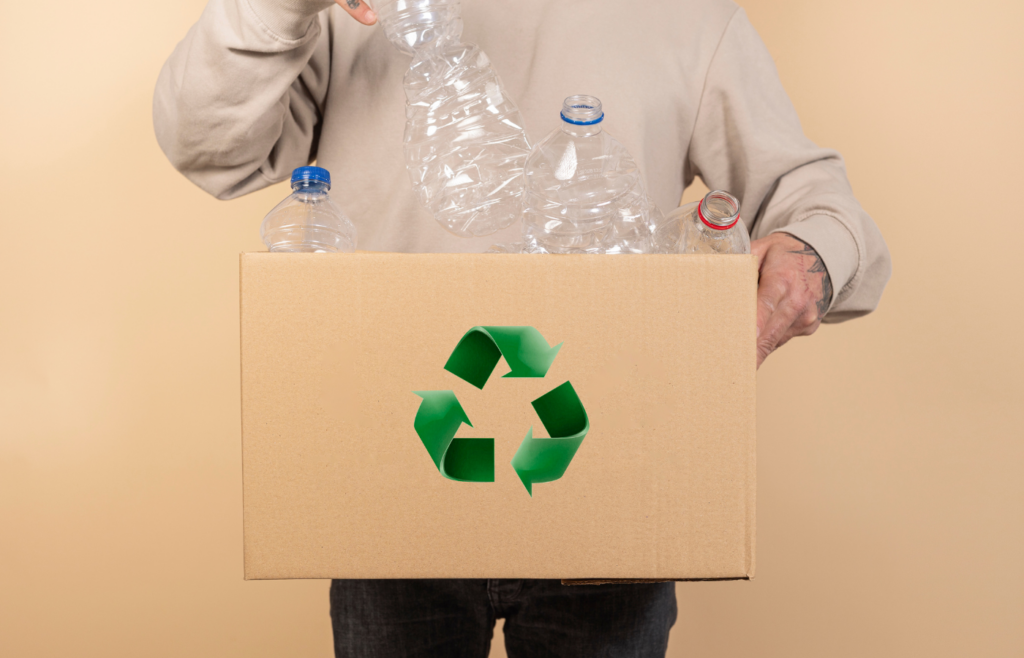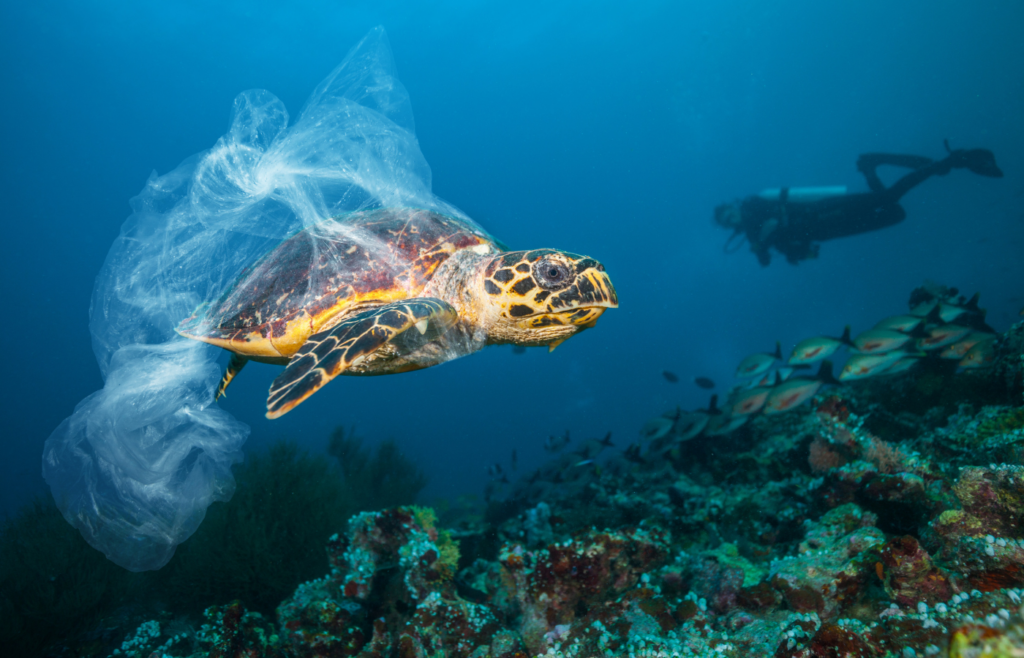The call for environmental responsibility has never been louder, and the Philippines is heeding the message. By implementing the EPR Act, the country aims to ensure that companies play an active role in reducing the environmental impact of their products.
At the heart of the Philippines’ EPR framework stands the Producer Responsibility Organisation (PRO). PROs serve as vital entities that monitor, regulate, and enforce the compliance of businesses with the law.
In this AIC Insight, we shine the light on Producer Responsibility Organisations in the Philippines. We’ll talk about the key role that they play in fostering sustainability and environmental stewardship among businesses.
Understanding Extended Producer Responsibility

Before we delve into the role of PROs, it is essential to comprehend the concept of Extended Producer Responsibility (EPR). EPR is an environmental policy approach that holds manufacturers and producers accountable for the entire life cycle of their products. This accountability spans from design and production to collection, recycling, and proper disposal.
By adopting EPR principles, the Philippines aims to shift the burden of managing post-consumer products from local governments to producers and manufacturers. At its core, the framework is designed to promote resource efficiency, reduce waste generation, and minimise the environmental footprint of products.
Under the EPR Act, producers are mandated to develop and finance comprehensive programs for the end-of-life management of their products. This includes setting up collection points, establishing recycling facilities, and responsibly disposing of hazardous materials.
The Birth of Producer Responsibility Organisations

The successful implementation of the EPR Act requires a dedicated organisation that can efficiently manage and oversee the intricate processes involved. This is where Producer Responsibility Organisations come into play.
A PRO is an independent entity that operates as a catalyst to ensure that companies adhere to the regulations. These organisations have a well-defined role in bridging the gap between manufacturers and regulatory authorities, fostering a sustainable approach to waste management and environmental protection.
The Function of Producer Responsibility Organisations

The primary function of a PRO is to serve as a compliance enforcer, waste management facilitator, and financial administrator. Here is a detailed look at the key functions of PROs in the context of the Philippines:
- Compliance Monitoring
PROs are responsible for ensuring that producers adhere to the requirements of the EPR Act. This includes verifying that producers are actively participating in the collection, recycling, and disposal of their products at the end of their lifecycle. PROs establish and oversee compliance systems, including reporting mechanisms and regular audits to track compliance progress. - Facilitating Collection and Recycling
PROs design and manage the collection and recycling networks necessary for the responsible disposal of products covered by law. This may involve setting up collection centres, collaborating with recyclers, and coordinating with local authorities for waste management. - Financial Management
The financial aspects of EPR implementation are a crucial responsibility of PROs. They are tasked with collecting fees from producers to fund the various initiatives required for proper waste management. These fees are used to cover the costs of collection, transportation, recycling, and disposal. - Data Management and Reporting
PROs are pivotal in data collection and reporting for businesses. They maintain records of the quantities and types of products entering the market and track the progress of recycling and disposal efforts. These data-driven insights are essential for regulatory authorities to assess compliance and make informed policy decisions. - Consumer and Stakeholder Engagement
PROs also engage with consumers and stakeholders to raise awareness about responsible consumption and waste management. This includes education campaigns, outreach programs, and encouraging the public to participate in recycling efforts. - Advocacy and Policy Development
PROs serve as advocates for environmental protection and sustainability. They actively engage with government agencies to develop and improve regulations related to EPR. They also collaborate with industry stakeholders to encourage sustainable product design and resource-efficient production processes.
A Global Perspective on PROs
The concept of PROs is not unique to the Philippines. Many countries worldwide have recognised the importance of these organisations in promoting sustainable and responsible producer practices.
In the United Kingdom, EPR systems have been in place for years, and PROs are important in ensuring the success of these systems. The diverse range of products covered by EPR programs, from electronics and batteries to packaging materials, showcases the versatility and effectiveness of PROs on a global scale.
Achieving the Goals of the EPR Act

In a world where environmental consciousness is no longer optional, the role of Producer Responsibility Organisations is indispensable.
In the Philippines, as the nation strives to reduce waste, conserve resources, and minimise its ecological footprint, PROs are the linchpin that can transform these ambitions into reality. Their multifaceted functions, from enforcing compliance to fostering recycling initiatives, are instrumental in achieving a circular economy and ensuring that businesses bear the responsibility of protecting the environment.
As the Philippines continues its journey towards sustainability, PROs will serve well in steering the nation toward a greener, more responsible future.
For more news & insights, stay tuned to the AIC website.

